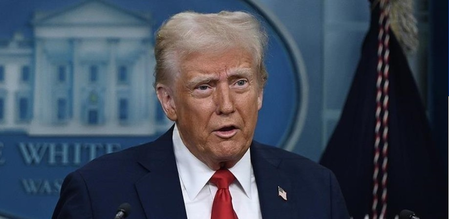First it was Canada, and now Australia and Singapore: the anti-Trump factor appears to be benefiting parties that are perceived as the best option to counter the US President’s antics. Australia’s Prime Minister Anthony Albanese, 62, secured a second term with a decisive victory over the Opposition, whose Right-wing leader, Peter Dutton, struggled to distance himself from comparisons to Donald Trump and ultimately lost his own seat. Defying the so-called “incumbency curse,” Albanese’s Centre-Left Labor Party achieved an unexpectedly comfortable win on 3 May, following a five-week election campaign focused on the cost of living crisis and the global economic uncertainty stemming from Trump’s tariff policies. Albanese is now the first Australian prime minister to serve consecutive terms since 2004.
Similar to Canada, Australia’s Opposition conservative party, the Coalition, appeared poised for victory even before Trump’s return to office, driven by public frustration over the cost-of-living crisis and soaring home prices. However, it has since seen a decline in voter support, as concerns grow about the government’s approach to Trump. Additionally, Dutton’s campaign has been criticised by commentators as one of the weakest in Australian political history, and the former police detective found it challenging to distance himself from certain Trump-like rhetoric and policies.
In Canada, a few months ago, it appeared almost certain that Pierre Poilievre would become the country’s next prime minister. His Conservative Party held a double-digit lead in the polls over the ruling Liberals, and Poilievre effectively tapped into the growing frustrations of voters weary from Prime Minister Justin Trudeau’s disastrous decade in office. However, the most significant factor influencing the political landscape was the shadow of Trump. His aggressive trade war with Canada and his repeated claims that Canada would be better off as America’s “51st state” reshaped the political equations. Mark Carney’s Liberals took advantage of the nationalism fuelled by Trump’s rhetoric, while Poilievre’s Right-wing, populist image suffered due to its association with Trump.
Also Read: Spirited Victory
A similar pattern was observed in Australia, where a poll by the public broadcaster ABC revealed that over 70 per cent of Australians believed Trump’s actions would negatively impact their financial condition. Additionally, a majority no longer considered the US a dependable security ally. Three months into Trump’s second term, 66 per cent of Australians felt their country could no longer rely on the US and needed to enhance its own military capabilities. This figure was below 40 per cent the previous June. This change in public attitude had a direct bearing on the election.
Just like the Centre-Left Canadian government, the Australian government too associated its political rivals with Trump’s administration and the Department of Government Efficiency (DOGE) led by billionaire Elon Musk. During the five-week election campaign, Australia faced 10 per cent tariffs on exports to the US, despite having traded at a deficit with its bilateral free trade partner for decades. The Opposition leader was mockingly referred to as “DOGE-y Dutton,” while Labor cautioned that a Dutton-led government would cut public sector services to finance seven government-funded nuclear power plants.
In the case of Singapore, again there was a Trumpian backlash in its 3 May election. Voters overwhelmingly cast their ballots for the ruling People’s Action Party (PAP). This helped Prime Minister Lawrence Wong defeat the Opposition Workers Party which appeared poised to win a larger share of votes and seats than in the last election. The PAP also was under public scrutiny for the cost of living crisis, low growth, and unavailable housing. But the PAP reversed the trend as the voters thought the incumbent was best positioned to handle the turmoil and uncertainty caused by Trump’s policies. Singapore feels particularly vulnerable for the size of its economy and exposure to international forces. The PAP has been able to convince the electorate of its seriousness to undertake a larger social welfare system and mitigate the hardships of the people reeling under a severe lack of affordable housing.
The upshot of the electoral battles in the three countries is that Trump is unwittingly helping people in different countries to rally behind parties and leaders opposed to his trade war and other policies, even though they would have chosen a better party had they had the option.






































